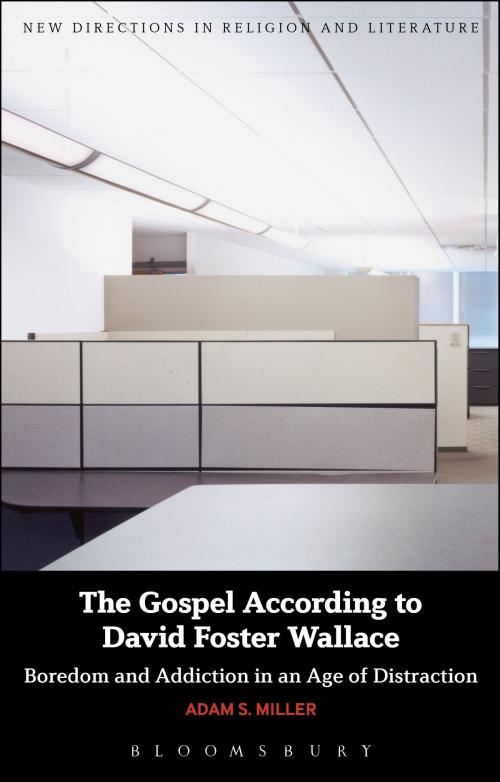The Gospel According to David Foster Wallace
Boredom and Addiction in an Age of Distraction
Nonfiction, Religion & Spirituality, Christianity, Christian Literature, Fiction & Literature, Literary Theory & Criticism, American| Author: | Professor Adam S. Miller | ISBN: | 9781474236997 |
| Publisher: | Bloomsbury Publishing | Publication: | February 25, 2016 |
| Imprint: | Bloomsbury Academic | Language: | English |
| Author: | Professor Adam S. Miller |
| ISBN: | 9781474236997 |
| Publisher: | Bloomsbury Publishing |
| Publication: | February 25, 2016 |
| Imprint: | Bloomsbury Academic |
| Language: | English |
The Gospel According to David Foster Wallace is the first book to explore key religious themes - from boredom to addiction, and distraction – in the work of one of America's most celebrated contemporary novelists.
In a series of short, topic-focussed chapters, the bookjoins a selection of key scenes from Wallace's novels Infinite Jest and The Pale King with clear explanations of how they contribute to his overall account of what it means to be a human being in the 21st century. Adam Miller explores how Wallace's work masterfully investigates the nature of first-world boredom and shows, in the process, how easy it is to get addicted to distraction (chemical, electronic, or otherwise). Implicitly critiquing, excising, and repurposing elements of AA's Twelve Step program, Wallace suggests that the practice of prayer (regardless of belief in God), the patient application of attention to things that seem ordinary and boring, and the internalization of clichés may be the antidote to much of what ails us in the 21st century.
The Gospel According to David Foster Wallace is the first book to explore key religious themes - from boredom to addiction, and distraction – in the work of one of America's most celebrated contemporary novelists.
In a series of short, topic-focussed chapters, the bookjoins a selection of key scenes from Wallace's novels Infinite Jest and The Pale King with clear explanations of how they contribute to his overall account of what it means to be a human being in the 21st century. Adam Miller explores how Wallace's work masterfully investigates the nature of first-world boredom and shows, in the process, how easy it is to get addicted to distraction (chemical, electronic, or otherwise). Implicitly critiquing, excising, and repurposing elements of AA's Twelve Step program, Wallace suggests that the practice of prayer (regardless of belief in God), the patient application of attention to things that seem ordinary and boring, and the internalization of clichés may be the antidote to much of what ails us in the 21st century.















